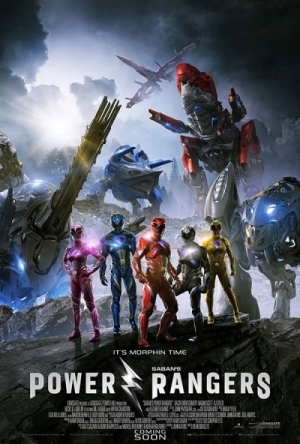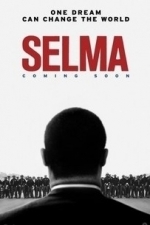Search
Search results
Film and stuff (30 KP) rated Power Rangers (2017) in Movies
May 15, 2019
Nostalgia goes a long way
Starring:
Elizabeth Banks, Bill Cranston, Dacre Montgomery, Naomi Scott, RJ Cyler, Ludi Lin and Becky G.
Director: Dean Israelite
Plot: Five troubled teens get super powers. Join forces with an interdimensional being and living robot to battle an enemy called Rita
Result:
A huge amount of fun and nostalgia for those who grew up with the TV show.
Whilst the film overall is on the scale of "not as bad as you might expect," it is a tremendous amount of fun and I enjoyed it from start to finish.
Low expectations and a disengaged brain will help a great deal with this.
Elizabeth Banks, Bill Cranston, Dacre Montgomery, Naomi Scott, RJ Cyler, Ludi Lin and Becky G.
Director: Dean Israelite
Plot: Five troubled teens get super powers. Join forces with an interdimensional being and living robot to battle an enemy called Rita
Result:
A huge amount of fun and nostalgia for those who grew up with the TV show.
Whilst the film overall is on the scale of "not as bad as you might expect," it is a tremendous amount of fun and I enjoyed it from start to finish.
Low expectations and a disengaged brain will help a great deal with this.
Gareth von Kallenbach (980 KP) rated Selma (2015) in Movies
Aug 6, 2019
Set in 1965, the film follows the voting rights marches from Selma to Montgomery. During the time Black citizens had the legal right to vote, but there were countless strategies put into place to stop them from actually being able to use those voting rights.
The film does a good job of providing back story of what was happening that brought on the marches. It portrays the horrific brutality of a time when blatant hatred ripped through the soul of the nation.
During the Selma march, peaceful protestors dressed in their Sunday’s best were beaten (even killed) by local police. However, even the most hard to watch moments of violence were toned down in comparison to actual footage from the Selma march.
The visceral moments of raw emotion and terrible violence will give the audience chills
Martin Luther King, Jr. (David Oyelowo) would of course be a hard pair of shoes to fill as an actor. But somehow Oyelowo pulls it off with a passion that shows in his eyes. Even the ways in which Oyelowo delivers his speeches were powerful and moving, much in the way of the real MLK, Jr.
An intriguing part of the film is the attention given to MLK, Jr.’s wife, Coretta Scott King (Carmen Ejogo). She is a less talked about figure in history, but perhaps this will now change. She is shown to be a very strong and intelligent woman, who serves as the backbone to the King family. Her role as wife, mother, and political supporter are highlighted.
The cast selection is top notch, making the film very realistic.
Tom Wilkinson, who plays Lyndon B. Johnson, practically resurrects the late President. His physical appearance and vocals make the actor almost indistinguishable from the real LBJ. .
However, there is some controversy over the historical accuracy of certain aspects of the film. This especially is true in regards to the portrayal of LBJ.
He is portrayed as under pressure to pass legislation in favor of Black voters, but he himself comes off as a racist whose heart is not in the cause. This portrayal paints a picture of a dishonest man, wielding political power to save face. It is contradicting to the more well-known image of the LBJ who actually cared very much about civil rights and poverty.
The Voting Rights Act of 1965 is thought to be his most important piece of legislative work. It was certainly not just a mere political reaction to protestors, though they surely had a strong impact on making it happen.
No one can deny the power of MLK, Jr.’s work. It is a profound historical example of the possibility for political transformation through the will of the people.
Another point of question is whether or not it was JFK or LBJ who originally ordered the FBI surveillance of MLK, Jr. and those associated with him.
A slightly troubling aspect of the film is that it lacks showing any tinge of gender inequality, which was a pervasive part of that era. Also, it was hinted at that MLK, Jr. had infidelity issues. Personally, I had some question as to whether or not this was true, or if it was even a useful piece of information to include. Perhaps it was included to show a more human side to MLK, Jr.
All of these questions aside, “Selma” is an amazing and moving piece of work.
A finely crafted cinematic reflection of a deep and painful scar on American history, I give “Selma” 4.5 out of 5 stars.
The film does a good job of providing back story of what was happening that brought on the marches. It portrays the horrific brutality of a time when blatant hatred ripped through the soul of the nation.
During the Selma march, peaceful protestors dressed in their Sunday’s best were beaten (even killed) by local police. However, even the most hard to watch moments of violence were toned down in comparison to actual footage from the Selma march.
The visceral moments of raw emotion and terrible violence will give the audience chills
Martin Luther King, Jr. (David Oyelowo) would of course be a hard pair of shoes to fill as an actor. But somehow Oyelowo pulls it off with a passion that shows in his eyes. Even the ways in which Oyelowo delivers his speeches were powerful and moving, much in the way of the real MLK, Jr.
An intriguing part of the film is the attention given to MLK, Jr.’s wife, Coretta Scott King (Carmen Ejogo). She is a less talked about figure in history, but perhaps this will now change. She is shown to be a very strong and intelligent woman, who serves as the backbone to the King family. Her role as wife, mother, and political supporter are highlighted.
The cast selection is top notch, making the film very realistic.
Tom Wilkinson, who plays Lyndon B. Johnson, practically resurrects the late President. His physical appearance and vocals make the actor almost indistinguishable from the real LBJ. .
However, there is some controversy over the historical accuracy of certain aspects of the film. This especially is true in regards to the portrayal of LBJ.
He is portrayed as under pressure to pass legislation in favor of Black voters, but he himself comes off as a racist whose heart is not in the cause. This portrayal paints a picture of a dishonest man, wielding political power to save face. It is contradicting to the more well-known image of the LBJ who actually cared very much about civil rights and poverty.
The Voting Rights Act of 1965 is thought to be his most important piece of legislative work. It was certainly not just a mere political reaction to protestors, though they surely had a strong impact on making it happen.
No one can deny the power of MLK, Jr.’s work. It is a profound historical example of the possibility for political transformation through the will of the people.
Another point of question is whether or not it was JFK or LBJ who originally ordered the FBI surveillance of MLK, Jr. and those associated with him.
A slightly troubling aspect of the film is that it lacks showing any tinge of gender inequality, which was a pervasive part of that era. Also, it was hinted at that MLK, Jr. had infidelity issues. Personally, I had some question as to whether or not this was true, or if it was even a useful piece of information to include. Perhaps it was included to show a more human side to MLK, Jr.
All of these questions aside, “Selma” is an amazing and moving piece of work.
A finely crafted cinematic reflection of a deep and painful scar on American history, I give “Selma” 4.5 out of 5 stars.

